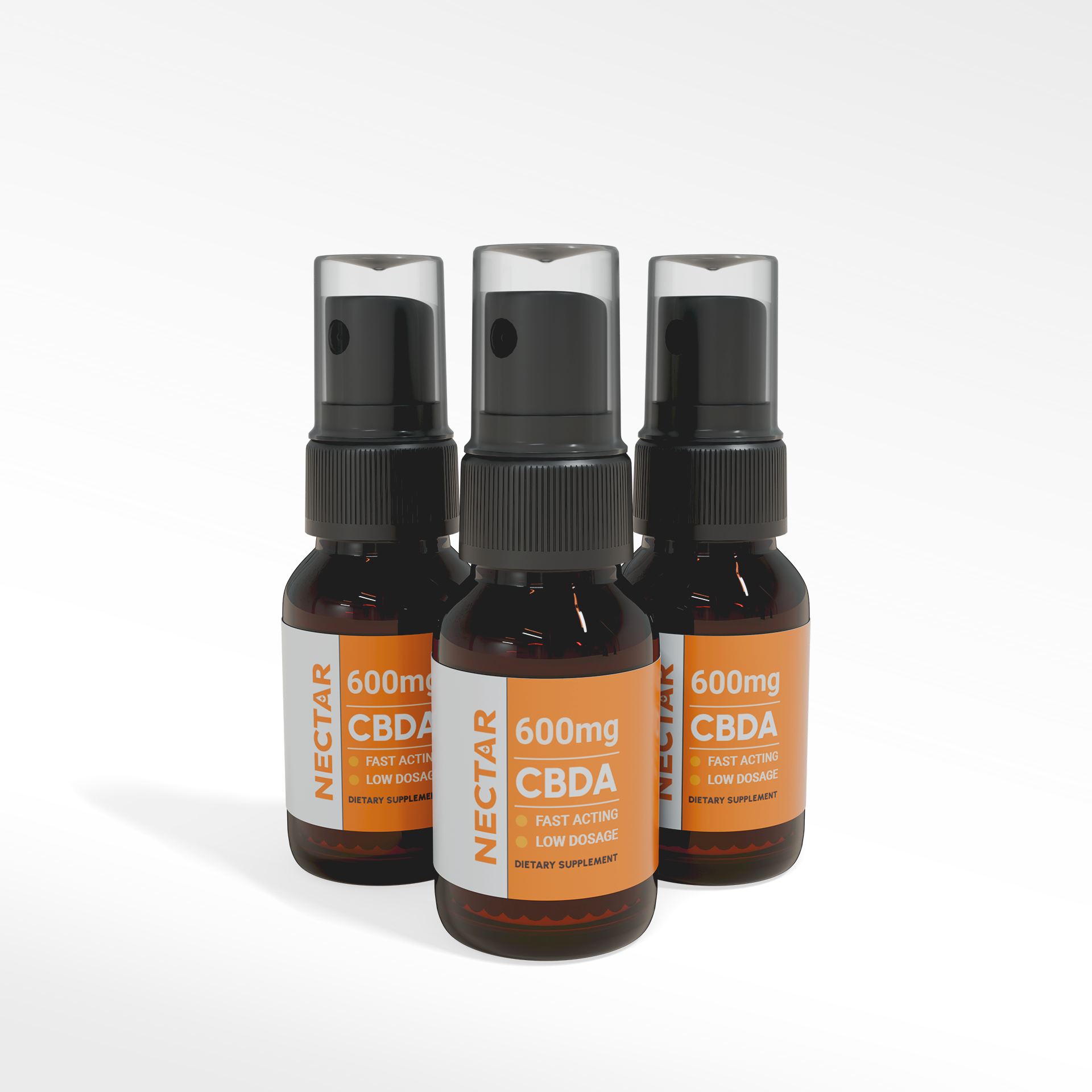CBD/CBDa
CBD (cannabidiol) and CBDa (cannabidiolic acid) are two significant compounds derived from the cannabis plant, each possessing unique properties and potential benefits. CBD is well-known for its therapeutic effects, including anti-inflammatory, analgesic, and anxiolytic properties, making it a popular choice for various health applications. In contrast, CBDa is the acidic precursor to CBD and has garnered attention for its own potential advantages, such as anti-inflammatory effects and possible neuroprotective qualities. While both compounds interact with the endocannabinoid system in distinct ways—CBD primarily engaging with cannabinoid receptors while CBDa may exhibit different pathways—ongoing research continues to explore their synergistic effects and overall impact on health. Understanding the differences between these cannabinoids can help consumers make informed choices about their usage in wellness products.
The Benefits of CBD: A Personal Journey
Cannabidiol, commonly known as CBD, has gained immense popularity over the past few years, particularly for its therapeutic properties. As someone who has struggled with arthritis, I can personally attest to the positive effects of CBD on my condition. Let's explore the benefits of CBD, the various ways to ingest it, and its historical background.
The Benefits of CBD
CBD is a non-psychoactive compound found in the cannabis plant. Unlike its counterpart, THC, CBD does not produce a "high" effect. Instead, it interacts with the body's endocannabinoid system, which plays a crucial role in regulating pain, mood, and inflammation. Users often report several benefits, including:
Pain Relief: Many have found CBD to be effective in alleviating chronic pain, including arthritis pain. It may help to reduce inflammation, providing much-needed relief.
Anxiety Reduction: CBD has been linked to reduced anxiety levels, allowing users to feel more at ease.
Improved Sleep Quality: Many find that CBD helps with sleep disorders, leading to deeper, more restorative sleep.
Neuroprotective Properties: Some studies suggest that CBD may protect brain health and could even prevent neurological decline.
Different Ways to Ingest CBD
CBD can be consumed in a variety of forms, each offering unique benefits and effects:
Oils and Tinctures: These are some of the most popular methods. They can be taken sublingually (under the tongue), allowing for quick absorption into the bloodstream.
Capsules and Edibles: Capsules offer a convenient way to take CBD. Edibles, such as gummies, provide a tasty alternative but may take longer to kick in as they are processed through the digestive system.
Topicals: Creams, balms, and salves infused with CBD can be applied directly to the skin. This method is particularly beneficial for localized pain.
Vaping: Inhaling CBD oil allows for rapid effects, as it enters the bloodstream quickly. However, this method may not be suitable for everyone.
Beverages: CBD-infused drinks are becoming increasingly popular and can be a refreshing way to consume cannabidiol.
My Experience with CBD for Arthritis
After experiencing persistent pain and discomfort due to arthritis, I decided to try CBD oil. Within about 30 minutes of taking it sublingually, I began to notice a significant reduction in pain levels. Unlike traditional pain medications that can cause side effects, CBD provided a natural alternative that allowed me to feel more in control of my symptoms.
The effects of CBD can last anywhere from 4 to 8 hours, depending on the dosage and method of consumption. For me, using a combination of capsules throughout the day and a topical application at night has helped maintain a consistent level of relief.
The History of CBD
CBD has been used for thousands of years. Ancient civilizations utilized cannabis for its therapeutic properties as far back as 3000 B.C. in China. Fast forward to the 20th century, cannabis was largely outlawed worldwide, overshadowing the positive attributes of its components, including CBD. In recent years, however, the tide has turned. With increasing legalization and research, CBD is gaining recognition for its health benefits.
In 2018, the U.S. Farm Bill legalized hemp-derived CBD, which further fueled its popularity. Since then, numerous studies have been conducted to substantiate the claims surrounding its benefits, paving the way for its widespread use today.
As someone who has dealt with the challenges of arthritis, CBD has been a game-changer for me. It has provided relief without the unwanted side effects often associated with traditional medications. Whether through oils, capsules, or topicals, the versatility of CBD allows individuals to find the method that works best for them. Always consult with a healthcare professional before starting any new treatment, but the growing body of evidence suggests that CBD might be a beneficial addition to your wellness routine.


